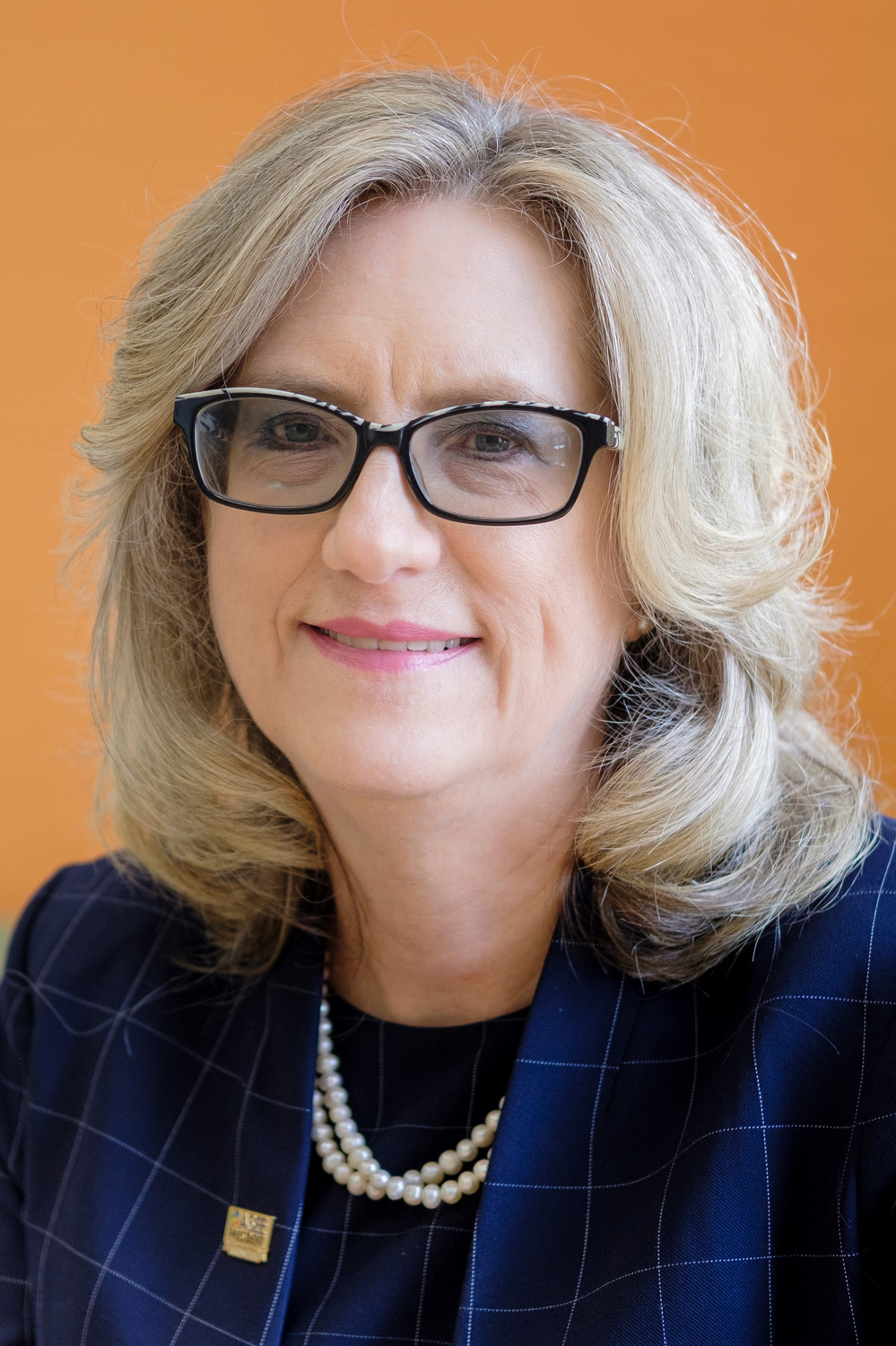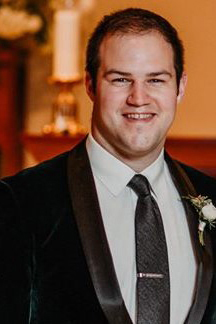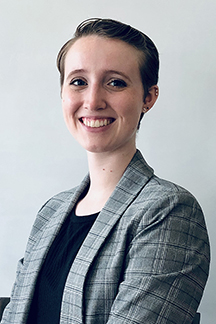COLLEGE OF ENGINEERING & SCIENCE
Mathematics & Statistics
Program Highlights
The Louisiana Tech Mathematics & Statistics degree program begins with an integrated freshman and sophomore curriculum which exposes students to mathematics’ connections to the sciences. This exposure can help a student decide on a minor in the sciences, but minors are not limited to the sciences. Minors of mathematics graduates include aviation, biology, business administration, computer science, English, finance, and physics. For students interested in engineering, we offer an engineering concentration instead of a minor, and for students who want to focus solely on mathematics, we offer a concentration in mathematics and statistics. Because mathematics is so closely related to engineering and the sciences, it is not uncommon for mathematics majors to earn a degree in one of these fields in addition to their mathematics degree. The flexibility of mathematics is reflected in the curriculum, which, aside from fundamental classes in Linear Algebra, Logic and Set Theory, Abstract Algebra, and Analysis, consists entirely of electives; students can tailor their curriculum to their interests.
Job Opportunities
- Actuarial science (risk assessment)
- Data science
- Information technology, computing
- Business, management, consulting
- Teaching at the elementary or secondary school level
Interested in Joining Our Program?
Whether you’re interested in joining our program or just have questions, we’re here to help.
Advising Materials
For a list of prerequisites and required courses, select the curriculum sheet below.
Mathematics and Statistics Curriculum Fall 2022
Faculty
Professor – Mathematics and Statistics, Program Chair – Computational Analysis Modeling
Departments: Center for Applied Physics Studies, Mathematics and Statistics
Professor
Departments: Center for Applied Physics Studies, Mathematics and Statistics
Assistant Professor
Departments: Center for Biomedical Engineering and Rehabilitation Sciences, Mathematics and Statistics
Academic Director for Mathematics and Statistics, Professor
Department: Mathematics and Statistics
Minors
Students who wish to obtain a more intensive degree program with a concentration in statistics-mathematics-engineering are not required to declare a minor if they earn credit for 21 semester credit hours of mathematics, statistics, or engineering courses which are approved by the student’s advisor. Note: No course may count toward the required mathematics and statistics courses in the mathematics curriculum and also the statistics-mathematics-engineering concentration.
Minor in Mathematics
Students in other departments who wish to minor in mathematics are required to take Math 241, 242 and an additional 18 semester credit hours earned in mathematics courses or statistics courses numerically above Math 242* with 9 semester credit hours being numerically above Math 300 and Statistics 300 (other than STAT 402). No more than 6 semester hours may be in statistics. All courses applied toward the minor must be completed with the grade of “C” or higher.
*Note this allows students to complete through MATH 245 as part of their minor requirements.
Minor in Actuarial Science
What Is Actuarial Science
Actuaries manage and reduce risk, working in a range of fields, including positions in industrial and government jobs, that analyze the potential for undesirable events to occur and plan for those events. Actuaries are in high demand and, currently, earn a median income of $100,000. As part of the Actuarial Science minor, students will take courses that will prepare them to complete the first two professional exams and will be prepared to begin their careers as actuaries upon graduation.
What Are the Course Requirements
The minor in Actuarial Science requires 18 credit hours to complete.
Actuarial Science Minor |
|||
Course |
Course Name |
# Hours |
Corresponding Actuary Test |
Mathematics and Industrial Engineering Prerequisite |
|||
| MATH 240 | Mathematics for Engineering and Science | 3 | |
| MATH 241 | Calculus I | 3 | |
| MATH 242 | Calculus II | 3 | |
| MATH 243 | Calculus III | 3 | |
| MATH 244 | Calculus IV | 3 | |
| INEN 300 | Engineering Economics | 2 | Exam 3F/MFE—Models for Financial Economics |
Statistics |
|||
| STAT 405 | Statistical Methods | 3 | Exam 1/P—Probability |
| MATH 490 (STAT 506) | Regression Analysis | 3 | Exam LC—Models for Life Contingencies |
| MATH 490 (STAT 520) | Theory of Probability | 3 | Exam 1/P—Probability |
| MATH 490 (STAT 521) | Theory of Statistics | 3 | Exam ST—Models for Stochastic Processes and Statistics |
Business-Oriented Classes |
|||
| INEN 301 | Industrial Cost Analysis | 3 | Exam 3F/MFE—Models for Financial Economics |
| MATH 315 | Financial Mathematics | 3 | Exam 2/FM—Financial Mathematics |
| Total # of Hours Required (beyond prerequisite courses): 18 | |||
NOTE: For Mathematics majors who wish to minor in Actual Science, MATH 315, STAT 405, and nine hours of MATH 490 used for the Actuarial Science minor cannot be counted towards their major requirements; a 300-level or above mathematics course needs to be used in place of INEN 301 to fulfill the major requirement.
Who Do I Contact for More Information
For more information, please contact Dr. Dave Meng at dmeng@latech.edu.
Research and Consulting
Research
The faculty conducts research in Numerical Analysis, Probability and Statistics, Differential Equations, Algebra, Topology, Discrete Mathematics and Mathematics Education. Some of this research is being funded by the National Science Foundation, the Louisiana Board of Regents, and other funding agencies. Some faculty members also advise graduate students in the Computational Analysis and Modeling program, an Interdisciplinary Ph.D. Program in Computational Analysis and Modeling.
Statistical Consulting Lab
The Statistical Consulting Lab provides programs, departments and organizations help in analyzing statistical information. Check back for more information.
Featured Alumni

Dr. Jenna Carpenter ’84
Founding Dean and Professor of Engineering, Campbell University
Why did you choose to study Math?
Math was always my favorite subject in school. I was also interested in teaching. Once I got to college, I realized that I could get a Ph.D. and teach math at the college level, so that is what I decided to do.
Why Louisiana Tech?
Louisiana Tech had a strong STEM reputation and it was less than 3 hours from where I grew up in Arkansas. The next closest STEM-focused institution was about twice as far.
What was your experience at Louisiana Tech like?
I absolutely loved my undergraduate experience at Tech. There were great faculty not only in mathematics, but also in my English, Spanish, history, PE, and many other classes. They cared about me and were encouraging and supportive. There were interesting things to do on campus. I was active in organizations like the Baptist Student Union and Angel Flight. And I made many great friends during my time at Tech. I loved the town of Ruston, as well, which was very student friendly. It was just an ideal place to go to college.
How did Louisiana Tech prepare you for leadership?
As I noted, I was active in organizations like the Baptist Student Union and Angel Flight, which provided me with leadership opportunities as an undergraduate. The faculty, departments, and administrators at Tech were good role models for creating effective and welcoming environments and programs for students.
What’s the biggest misconception about majoring in Math?
For one thing, most people don’t really have any idea what you could do with a degree in math aside from teaching. A math degree teaches you problem-solving skills and logical thinking skills. Those are valuable in a wide variety of careers, including industry and business. A second misconception is that the average person doesn’t know about the wide array of topics within mathematics that you can study. It is far more than algebra and trig. You can pursue pure or applied mathematics, with a focus in any number of areas.
What was your favorite experience as a Math student at Tech?
We had to take a two-course sequence in advanced calculus, which was really an introduction to real analysis. I didn’t feel that I understood the material very well, so I was really nervous about the first test. I started feeling pretty bad while I was taking the test, but I finished it and then went to the doctor, where I found out that I had walking pneumonia. I was sure surprised when I got my test back and made an A!
What’s the most important piece of advice you’d give an incoming Math student?
It is important to understand the math that you are learning, versus just memorizing your way through it. Math is more than just rules and processes. The overarching theory behind it is really interesting and helps everything gel. If you get a chance to take a math history course, I would highly recommend it, as it will help you begin to see the bigger picture.

Hunter Boudreaux ’16
Actuarial Assistant I, Protective Life
Why did you choose Louisiana Tech University?
I chose Louisiana Tech for a few reasons. It was fairly close to my hometown, and my family and I knew the school of engineering and science had a good reputation. Additionally, Louisiana Tech has great scholarship opportunities that allowed me to get a college education when otherwise it may have been difficult to afford.
Why did you choose to major in Math?
I initially thought I wanted to major in mechanical engineering because I loved math and thought that would be a great fit. Also, I didn’t really know that I could major in math. During my first quarter, I swapped to math, because that was what I really enjoyed. I didn’t really have a plan for what I wanted to do after college, but I figured it out along the way.
How did Louisiana Tech and the Math Program help you grow as a person and as a professional?
Math is not an easy major. It took a lot of time and hard work to make it through my classes. It pushed me to learn things that at first, I didn’t think I was capable of understanding. Louisiana Tech also has many great opportunities to help you grow professionally. My senior year I attended the career fair to see what job opportunities were out there; even though I didn’t find a job, I did learn to write a resume and how to interact with potential employers.
What was your favorite part of being a Tech/Math student?
There weren’t many math majors, so you get a chance to know the other students and the professors really well. This was really helpful when it came to studying for exams or working on homework problems. I spent a lot of time in my professors’ office hours or in the library with other math majors.
What’s the biggest misconception about majoring in math?
I think one of the biggest misconceptions about math is that other students don’t really understand what we study. It can be difficult to explain to others what you’re learning about in your classes, especially classes that focus on theory.
What’s the most important piece of advice you would give incoming or current Tech/Math students?
Make friends in your classes. It can be really helpful to work together on those tough homework problems in higher-level math classes, and you can learn a lot from each other. Also, don’t be afraid to ask your professors for help. Take advantage of their office hours.

Kendall L. Gibson ’19
Doctoral Student, Tulane University
Why did you choose Louisiana Tech University?
I chose Louisiana Tech for a few reasons. It was fairly close to my hometown, and my family and I knew the school of engineering and science had a good reputation. Additionally, Louisiana Tech has great scholarship opportunities that allowed me to get a college education when otherwise it may have been difficult to afford.
Why did you choose to major in Math?
I initially thought I wanted to major in mechanical engineering because I loved math and thought that would be a great fit. Also, I didn’t really know that I could major in math. During my first quarter, I swapped to math, because that was what I really enjoyed. I didn’t really have a plan for what I wanted to do after college, but I figured it out along the way.
How did Louisiana Tech and the Math Program help you grow as a person and as a professional?
Math is not an easy major. It took a lot of time and hard work to make it through my classes. It pushed me to learn things that at first, I didn’t think I was capable of understanding. Louisiana Tech also has many great opportunities to help you grow professionally. My senior year I attended the career fair to see what job opportunities were out there; even though I didn’t find a job, I did learn to write a resume and how to interact with potential employers.
What was your favorite part of being a Tech/Math student?
There weren’t many math majors, so you get a chance to know the other students and the professors really well. This was really helpful when it came to studying for exams or working on homework problems. I spent a lot of time in my professors’ office hours or in the library with other math majors.
What’s the biggest misconception about majoring in math?
I think one of the biggest misconceptions about math is that other students don’t really understand what we study. It can be difficult to explain to others what you’re learning about in your classes, especially classes that focus on theory.
What’s the most important piece of advice you would give incoming or current Tech/Math students?
Make friends in your classes. It can be really helpful to work together on those tough homework problems in the higher-level math classes, and you can learn a lot from each other. Also, don’t be afraid to ask your professors for help. Take advantage of their office hours.